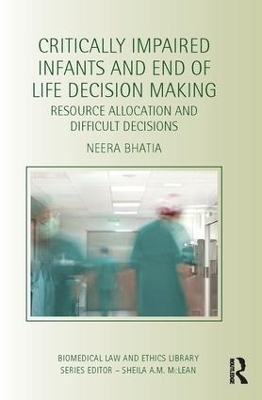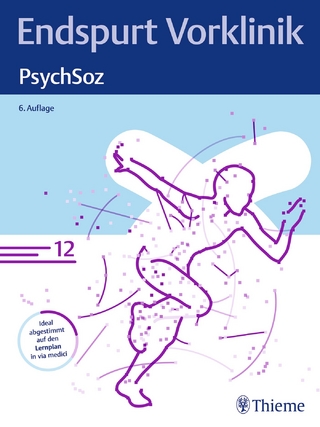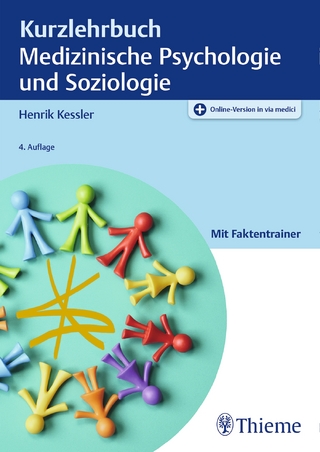
Critically Impaired Infants and End of Life Decision Making
Resource Allocation and Difficult Decisions
Seiten
2015
Routledge (Verlag)
978-1-138-82848-3 (ISBN)
Routledge (Verlag)
978-1-138-82848-3 (ISBN)
Decisions to withdraw or withhold life-sustaining treatment are contentious, and offer difficult moral dilemmas to both medical practitioners and the judiciary. This issue is exacerbated when the patient is unable to exercise autonomy and is entirely dependent on the will of others.
This book focuses on the legal and ethical complexities surrounding end of life decisions for critically impaired and extremely premature infants. Neera Bhatia explores decisions to withdraw or withhold life-sustaining treatment from critically impaired infants and addresses the controversial question, which lives are too expensive to treat? Bringing to bear such key issues as clinical guidance, public awareness, and resource allocation, the book provides a rational approach to end of life decision making, where decisions to withdraw or withhold treatment may trump other competing interests.
The book will be of great interest and use to scholars and students of bioethics, medical law, and medical practitioners.
This book focuses on the legal and ethical complexities surrounding end of life decisions for critically impaired and extremely premature infants. Neera Bhatia explores decisions to withdraw or withhold life-sustaining treatment from critically impaired infants and addresses the controversial question, which lives are too expensive to treat? Bringing to bear such key issues as clinical guidance, public awareness, and resource allocation, the book provides a rational approach to end of life decision making, where decisions to withdraw or withhold treatment may trump other competing interests.
The book will be of great interest and use to scholars and students of bioethics, medical law, and medical practitioners.
Neera Bhatia is a Lecturer at the Deakin University School of Law, Australia
1. Introduction 2. The effectiveness of the best interests principle 3. Non-uniformity in clinical guidelines 4. The role, impact and importance of key care givers and decision makers 5. Theories of distributive justice: Healthcare and extremely premature and critically impaired infants 6. Resource allocation: An objective approach in end of life decision making for extremely premature and critically impaired infants 7. Other observations and concluding remarks
| Erscheint lt. Verlag | 9.6.2015 |
|---|---|
| Reihe/Serie | Biomedical Law and Ethics Library |
| Verlagsort | London |
| Sprache | englisch |
| Maße | 156 x 234 mm |
| Gewicht | 620 g |
| Themenwelt | Geisteswissenschaften ► Philosophie ► Ethik |
| Medizin / Pharmazie ► Gesundheitswesen | |
| Medizin / Pharmazie ► Medizinische Fachgebiete ► Medizinethik | |
| Studium ► 1. Studienabschnitt (Vorklinik) ► Med. Psychologie / Soziologie | |
| Studium ► Querschnittsbereiche ► Geschichte / Ethik der Medizin | |
| Recht / Steuern ► Allgemeines / Lexika | |
| Recht / Steuern ► EU / Internationales Recht | |
| Recht / Steuern ► Privatrecht / Bürgerliches Recht ► Medizinrecht | |
| Sozialwissenschaften ► Soziologie | |
| ISBN-10 | 1-138-82848-3 / 1138828483 |
| ISBN-13 | 978-1-138-82848-3 / 9781138828483 |
| Zustand | Neuware |
| Haben Sie eine Frage zum Produkt? |
Mehr entdecken
aus dem Bereich
aus dem Bereich


